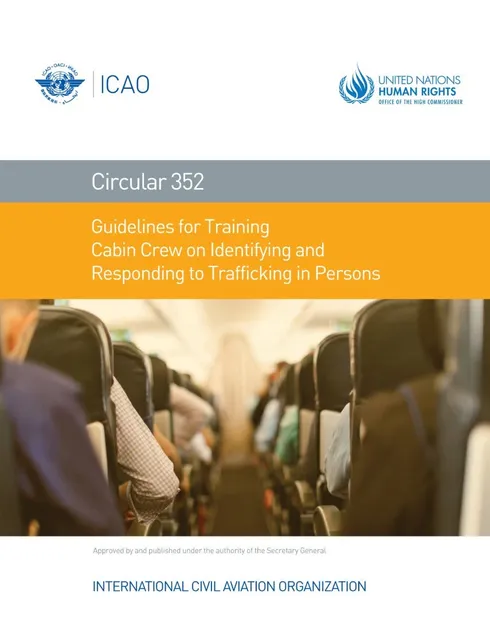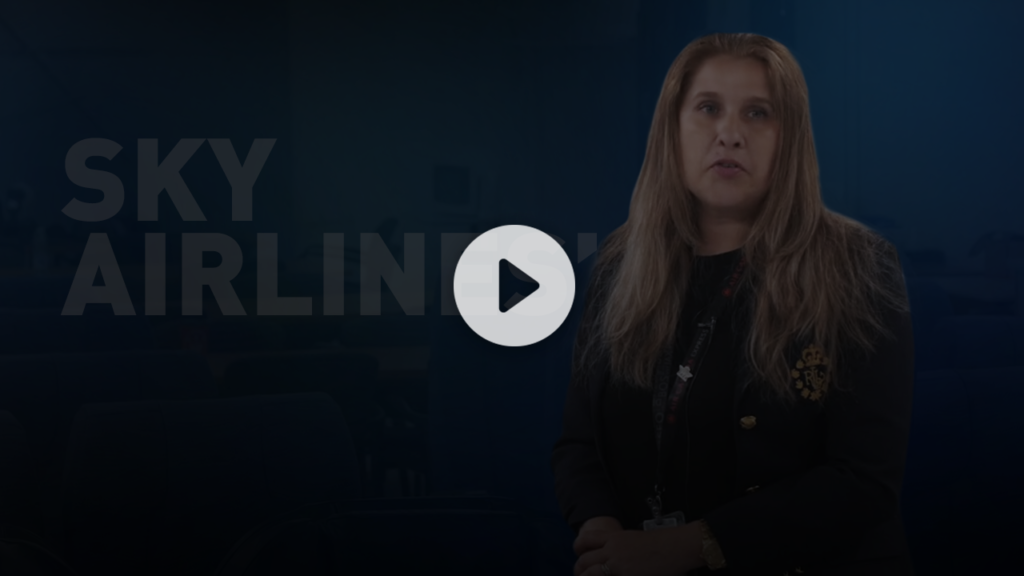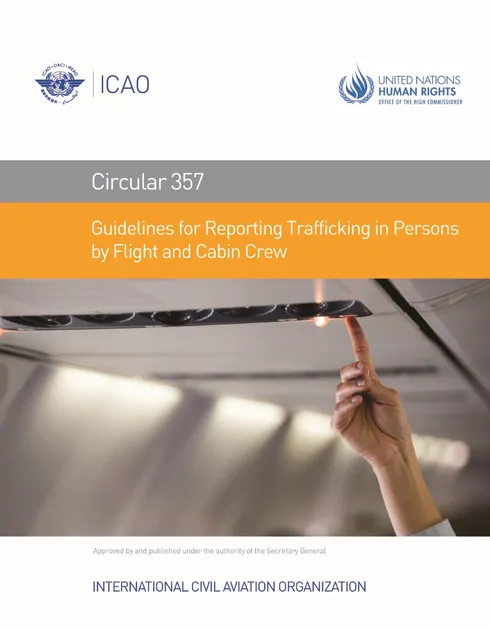The United Nations is unwavering in its commitment to combatting human trafficking in persons, and ICAO took an important stride forward when it launched guidelines for reporting trafficking cases within the international civil aviation network. The theme for World Day Against Trafficking in Persons 2023 is “Reach every victim of trafficking, leave no one behind,” it is a campaign that aims to raise awareness of distressing developments and trends identified by the United Nations Office on Drugs and Crime (UNODC). World Day against Trafficking in Persons is recognized on July 30th every year, with a call to governments, law enforcement, public services, and civil society to evaluate and bolster their efforts in preventing trafficking, identifying and supporting victims, and ending impunity.
 As part of the broader fight against trafficking, ICAO has introduced a free e-learning course to promote capacity-building. In a world marred by global crises, conflicts, and climate emergencies, the risks of trafficking are escalating. Displacement and socio-economic inequalities are leaving countless individuals vulnerable to exploitation by traffickers. Among the primary targets are those without legal status, trapped in poverty, deprived of education, healthcare, or dignified work, facing discrimination, violence, abuse, or hailing from marginalized communities.
As part of the broader fight against trafficking, ICAO has introduced a free e-learning course to promote capacity-building. In a world marred by global crises, conflicts, and climate emergencies, the risks of trafficking are escalating. Displacement and socio-economic inequalities are leaving countless individuals vulnerable to exploitation by traffickers. Among the primary targets are those without legal status, trapped in poverty, deprived of education, healthcare, or dignified work, facing discrimination, violence, abuse, or hailing from marginalized communities.
Tragically, national responses to trafficking, especially in developing States, have shown signs of deterioration. In 2020, detection rates fell by 11%, and convictions plummeted by 27%, a stark testament to the global slowdown in the criminal justice response to trafficking. The COVID-19 pandemic further complicated matters, driving trafficking deeper underground, and endangering victims by reducing the likelihood of authorities’ intervention. Alarmingly, 41% of survivors who managed to escape reached out to authorities on their own, highlighting the inadequacy of existing anti-trafficking measures.
The call to “Leave no one behind” resonates deeply with the central promise of the 2030 Agenda for Sustainable Development and its Sustainable Development Goals (SDGs). When applied to trafficking in persons, this entails:
- Ending the Exploitation of Trafficking Victims: There must be concerted efforts to rescue victims from the clutches of traffickers and protect them from further harm. This requires effective collaboration between States, law enforcement, and operators to identify and respond to trafficking cases promptly.
- Supporting Victim-Survivors on the Path to Recovery: Once freed from their traffickers, survivors need comprehensive support systems to heal from their traumatic experiences. Empowering victim-survivors to rebuild their lives and reintegrate into society is crucial for their well-being.
- Shielding Identifiable Groups from Traffickers: Vulnerable populations at risk of trafficking must receive targeted protection. By addressing socio-economic disparities and providing access to education, healthcare, and decent work, we can mitigate the factors that make certain groups susceptible to trafficking.
As the world reaches the mid-point of the 2030 Agenda’s implementation and approaches the SDG Summit 2023, it becomes imperative to heighten awareness and reaffirm global commitments to eliminating trafficking in persons. SDGs 5, 8, and 16 specifically mention the urgency of this task, calling on States to enhance their efforts in implementing the Trafficking in Persons Protocol to the UN Convention against Transnational Organized Crime. Strengthening national frameworks for the identification and protection of trafficking victims, particularly during times of crisis, is an essential step toward achieving these goals.

In this endeavor, the international civil aviation network plays a pivotal role. We launched our guidelines, developed in collaboration with the Office of the United Nations High Commissioner for Human Rights (OHCHR), to equip cabin crew with the tools to identify and respond to trafficking cases effectively. By providing standardized reporting forms and training on proper reporting procedures, airlines enable their crew to assist law enforcement both during flights and on the ground.
 Recognizing the significant impact the aviation industry can have, ICAO emphasizes that the entire global aviation community must unite to prevent trafficking in persons, ultimately putting an end to the abuse of international air transport by traffickers.
Recognizing the significant impact the aviation industry can have, ICAO emphasizes that the entire global aviation community must unite to prevent trafficking in persons, ultimately putting an end to the abuse of international air transport by traffickers.
The expansion of training for cabin crew and the wider travel industry is hailed by UN High Commissioner for Human Rights Michelle Bachelet as a crucial element in protecting the human rights of some of the most vulnerable people. By integrating the ICAO-OHCHR training materials, airlines can enhance their efforts in preventing trafficking, reaching every victim, and leaving no one behind.
Around the world so many are being forced into working and living conditions resulting from human trafficking, a practice considered akin to modern slavery. Reflecting the fact that many of these victims were moved from country to country via commercial aircraft, the ICAO-OHCHR training launched also includes video interviews with trafficking survivors and airlines who already train their cabin crew on this subject.
The ICAO-OHCHR training to combat trafficking in persons for cabin crew must be supplemented by further airline training on specific internal procedures and practices. The training and the guidance materials highlighted here are accessible to cabin crew members and other aviation professionals through ICAO’s website.
In the collective pursuit of a trafficking-free world, it is essential to synergize the 2023 World Day Against Trafficking in Persons campaign with the comprehensive guidelines and training provided by ICAO and OHCHR. Together, let us fortify our commitment to protect the rights and dignity of every individual, ensuring that no one remains a victim of trafficking.

